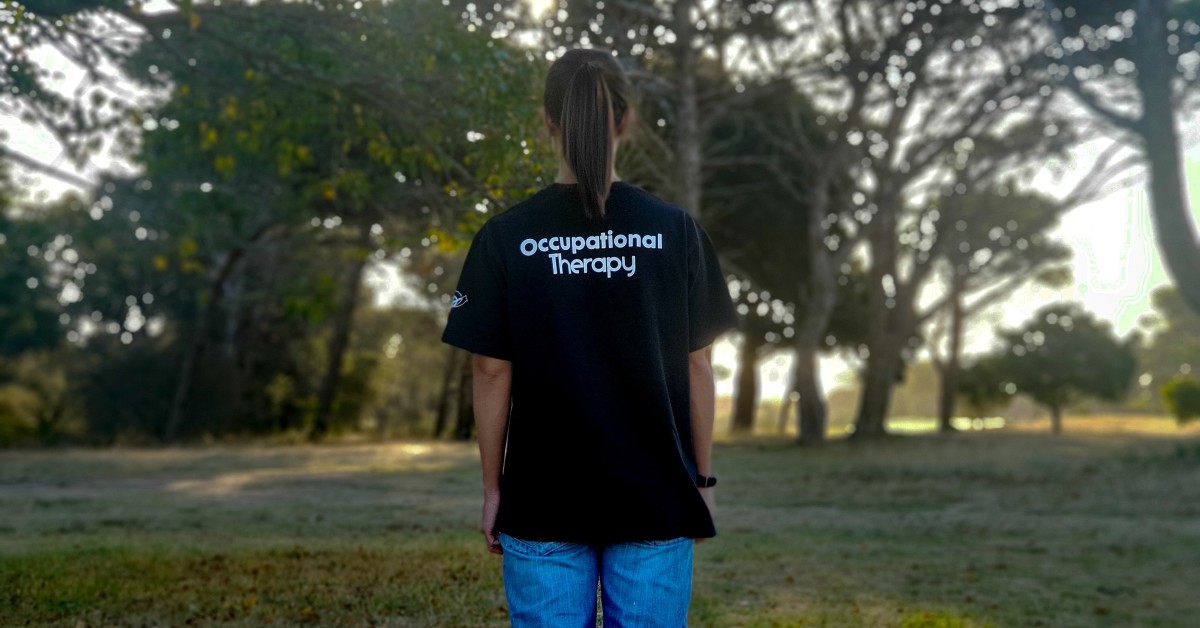
What Are the Education Requirements to Become a Pharmacist?
Top Doctor of Pharmacy (PharmD) programs typically look for a [...]

Jobs for clinical and counseling psychologists are expected to grow over the next decade, according to the US Bureau of Labor Statistics (BLS). That might be what’s fueling increased enrollments in psychology programs at colleges and universities across the country. At the undergraduate level, psychology is a more popular major than math, electrical engineering, information sciences, and even computer science. At the graduate degree level, enrollment is also surging.
You might assume that those psych undergrads are the ones enrolling in graduate programs designed to train the next generation of clinical therapists, but you’d be wrong. A lot of psychology majors enter the workforce after earning bachelor’s degrees and build careers in fields where an understanding of how the mind works is an asset. Clinical psychologists with doctorates do earn the most money, but there’s plenty you can do with a BS or an MS in psychology.
So, is a psychology degree worth it? In this article, we answer that question and cover:
That depends on your career goals. Most people assume that choosing a career in psychology means becoming a clinical psychologist, clinical therapist, mental health counselor, or psychoanalyst. There are other career paths in psychology, however. You could also join the ranks of school psychologists, go into forensic psychology, work in industrial-organizational psychology, or build a career in clinical social work. What all the above psychology careers have in common is that the minimum education necessary is either a master’s in psychology or—more typically—a doctoral degree like a PhD or PsyD.
There are non-clinical careers for psychology majors, too, and landing an entry-level position in these fields typically doesn’t require completing a master’s degree program. People with undergraduate psychology degrees work in many fields, including:
Many of the required courses in psychology programs touch on the human elements of business. Combined with research and statistics skills, students can look to management as a viable and lucrative career path.
From forensic psychology to work on a police force, a background in psychology is key to working in the heart of the community in a supportive way.
Paired with an education degree, psychology grads transition into the classroom or work one-on-one with students as a counselor or career coach.
A psychology major builds a wealth of knowledge on how to help groups best work together. These skills transfer to professional settings for training, onboarding, and common HR challenges.
Marketing departments often look for professionals who can generate and interpret data on human decision-making—a key component of advertising.
Graduates can combine their data analysis training with their study of human behavior to increase sales for a company or even launch a new venture of their own.
Graduates can coordinate with government-funded or private organizations by providing mental health support, financial services, or individual casework to communities.
| University and Program Name | Learn More |
|
Merrimack College:
Master of Science in Clinical Mental Health Counseling
|
Psychology programs can last anywhere from two years to six years, and sometimes even more. There are associate’s degree programs in psychology that last about two years, and these can seem like an economical option. The reality is, however, that there aren’t many jobs you can get with an associate’s degree from the psychology department. You might be able to find work as a psychiatric technician or a rehabilitation technician in some states. Still, in general, an associate’s is merely a stepping stone on the path to earning a bachelor’s or master’s degree in psychology.
Bachelor’s degree programs typically take four years to complete and master’s programs take two. There are also 4+1 and 3+1 programs that let students apply for undergraduate psychology and graduate-level psychology programs simultaneously and earn both degrees in less time. You can find these kinds of accelerated programs at:
Rider allows students to complete a bachelor’s and graduate degree in five years within its flexible 4+1 program.
Students can choose from a range of degrees and concentrations related to psychology in this 4+1 program. Both a thesis and non-thesis option are available in most subjects.
Accelerated pathway degree programs at the University of Houston combine career-focused degrees in a 4+1 setup. In this case, psychology combines with an MPP, a Master’s in Public Policy.
The University of Indianapolis combines a BA and MS in Psychology in five years, opening up a pathway to a larger range of job opportunities as well as the school’s doctorate program.
Students have the opportunity to apply for either a 3+1 or 4+1 program in Psychology Research Methods.
Doctoral programs are the wildcard when it comes to how long it takes to complete a psychology degree. That’s because while many PhD and PsyD programs are designed to be completed within two or three years, students often take four to six years or even more to earn their degrees. At that point, they are qualified to work in academia or research. If they want to become counseling psychologists, forensic psychologists, or clinical therapists, or work in school psychology, they need to complete an additional one to two years of supervised clinical experience before they can get a license to practice.
You will most likely need to study psychology in a doctoral program if your goal is to work as a clinical psychologist. In most states, the only way to become a clinical therapist, counseling psychologist, or psychoanalyst is to get a doctorate like the PhD—or the alternative designed specifically for aspiring clinicians, the PsyD. Even assistant psychologists need advanced degrees.
There are a few states in which it’s possible to become a licensed psychologist with a master’s degree in psychology, but even in those states, you will likely be competing for work against psychologists with doctoral degrees. Finding clients or work in clinical practice may be challenging.
The curriculum in psychology degree programs varies by degree type.
There are two types of psychology bachelor’s degrees: the Bachelor of Science in Psychology and the Bachelor of Arts in Psychology. Generally, the curriculum in BS degree programs includes more math and science courses. In contrast, the BA curriculum includes more general education courses, but colleges and universities create their own naming conventions. The psychology BS and BA programs at two different schools can be nearly identical, so always read program guides carefully.
Students studying psychology at the bachelor’s degree level take courses like:
Also known as gerontology, students study the neurological science of the mind as a person grows older, as well as how aging relates to common psychological issues.
This general topic explores a human’s mental well-being, decision-making processes, and how each unique personality interacts with society.
This class will touch on the emotional, social, and cognitive developmental stages of children within a range of settings and when faced with common challenges.
Students focus on the learning, memorization, and data processing of the human mind, particularly on the scientific neurological level.
This mid to high-level course explains the daily responsibilities of a counselor and their goals in supporting patients through their process.
Typically linked to cognitive psychology, critical thinking courses explore how the mind interprets data within the context of their world and which elements affect this process.
The curriculum dives more deeply into changing psychological patterns as a person ages—typically covering everything from birth to the late stages in life.
Students explore physical and psychological health topics within the context of larger communities. Topics cover the elements of a healthy society and how public and private organizations support these goals.
Topics in a quantitative psychology course explore the methods used to measure human behavior to translate it into research methods and outcomes.
Statistic and related mathematics courses provide a foundation for building and understanding data sets used in psychology research labs and studies.
Both the BS in Psychology and the BA in Psychology are appropriate degrees for students who want to eventually work in an applied psychology role or in fields like social work, social psychology, or counseling.
There are also two types of master’s degrees in psychology: the Master of Science in Psychology and the Master of Arts in Psychology. As is the case with bachelor’s degree programs, these types of programs may be quite different or nearly indistinguishable from one another. Master’s-level psychology degree programs can have general or specialized curricula. The coursework in general programs typically touches on a broad range of topics, while students in specialized programs will take more courses related to one area of psychology. You might choose a concentration like:
This concentration directly links to handling the common psychological challenges of individuals. Due to its broad scope, graduates either pursue clinical or nonclinical career paths.
Earning a master’s in clinical psychology typically indicates that the student plans to go on to earn a doctoral degree. Graduates may have aspirations in leading research or working directly in a medical facility.
The study of learning and development directly applies to the classroom, to educational invitations, and to a clinical career path, especially for children and young adults.
Students with the goal of pursuing work in a clinical setting can explore a range of counseling tactics, including marriage and family, career, or addiction counseling.
Diving deeper into developmental psychology opens the doors to deeper research and job opportunities in social work, counseling, and teaching.
Teachers, administrators, and specialized school counselors all benefit from further training in educational psychology, both for curriculum building and faculty management.
Engineering psychologists analyze how different communities interact with machines and computers, opening up career opportunities in the tech, app development, and machine engineering sectors.
Forensic scientists learn to grasp the societal and psychological links to legal topics and criminal behavior.
This area looks at mental health from a broader, societal perspective, analyzing how both factors impact physical health and the patient experience.
Professionals passionate about the complex dynamics of workplace culture may choose to explore this concentration. HR professionals may return to school for a master’s in industrial-organizational psychology if they’re looking to lead a company’s people management team or go into a corporate research role.
Neuropsychology graduate majors typically intend to earn a doctorate degree as well. This form of study links the activity in the brain with specific human behaviors.
Earning a master’s in quantitative research methods puts students at the forefront of psychological studies and how these studies are performed.
Students grasp the historical and cultural background of experiments conducted in the world of psychology since its infancy. The student’s thesis may play a larger role in their final project than other concentrations.
Social psychologists with a graduate degree pursue everything from political positions to roles in large research studies, more specifically with a concentration on the growth and development of a society.
A sports psychologist can pursue everything from a high school coaching role to a team research professional. The topics explore psychological behavior for players, fans, and team management.
Regardless of the concentration you choose, you’ll probably take classes in:
Students explore common conscious or subconscious biases that affect their role in the psychological field as well as related ethical implications.
The course explores medical interventions for a range of mental health disorders and provides context for their development and use.
This foundational course provides a baseline of research methods necessary to both interpret and lead psychological research studies.
Classes touch upon the roles humans naturally take while faced with a challenge as a group, whether in a concentrated setting or a larger society.
Graduate students will explore higher-level topics in this common psych course, such as linguistics, neurobiology and cognition, and historical theories on memory.
Students gain perspective from a range of diverse backgrounds, including their societal causes and how to maintain a multicultural perspective on treatment.
Private and public companies cultivate unique behaviors, cultures, and philosophies. The course provides a business and professional lens to common psychological challenges.
Even if a student does not intend to pursue a doctorate, understanding the basics of the brain and its link to behavior is crucial for understanding the related topics.
Students explore statistical methods more deeply, particularly relating to studying patients, gathering data, and translating information to those outside the field.
Be aware that many colleges and universities don’t offer standalone psychology master’s programs. At these schools, MS in Psychology and MA in Psychology programs are part of the doctoral path, and students earn these degrees while pursuing a PhD or PsyD.
Students at this level have the option of pursuing a PhD (i.e., the Doctor of Philosophy in Psychology) or the PsyD (Doctor of Psychology). The former tends to be more research-focused and is technically geared toward students who want to become academics, but many PsyD programs are appropriate for aspiring clinicians.
PsyD programs, on the other hand, are focused on the professional practice of clinical psychology and are sometimes the better choice for aspiring psychotherapists. Both programs offer opportunities to choose a specialty like developmental psychology or experimental psychology. Both require students to complete a supervised practicum and internship. PsyD programs are more likely to study topics related to diagnosing and treating mental illness.
Though these degree pathways can be quite different, the consensus seems to be that these degrees are comparable when it comes to professional recognition and employment opportunities.
To answer the question “Is a psychology degree worth it?”, you need to look at the opportunities available at each degree level.
As mentioned above, however, there are plenty of jobs outside of psychology that people who complete a four-year psychology degree program can do. With a bachelor’s degree in psychology, you can work in:
Utilize your knowledge of community dynamics and human behaviour to help facilitate a private business, non-profit, or public office.
Schools, non-profits, and now many private companies encourage professional development initiatives, all of which require a trained professional with a background in cognition and the learning experience.
Undergraduate psychology degrees work in non-clinical roles within healthcare, particularly administrative support, patient support, or assistant positions.
Each of these industries calls for professionals who work one-on-one with clients to solve complex issues while managing the sales goals of a company—both of which relate to the areas covered in the psychology curriculum.
The statistics and data-focused classes are directly related to finance and accounting, combining with it a unique knowledge of common human actions and cognition.
Graduates can help guide the employee experience from the interview process to onboarding and training. Psychology topics also cover areas like conflict resolution and healthy communication.
Utilize your knowledge of human behavior and decision-making by supporting a marketing team looking to reach specific groups of consumers.
People with psychology degrees balance the mathematical skills necessary to handle the logistics of a job in sales while also addressing the decision-making behaviors of customers.
A bachelor’s in psychology directly lends to supporting communities that call mental health support, individual casework, and advocacy.
If you opt to go this route, you won’t be alone. About half of psychology graduates never return to school to obtain advanced degrees in psychology. There are a handful of entry-level jobs related to psychology that are open to undergrad psych majors, however. You could become an assistant applied behavior analyst or work as a data analyst in a research laboratory. Some psychology majors work in substance abuse programs doing case management or even as de facto counselors. Those who do go to graduate school can work as clinical psychologists in some states, but it’s more common for master’s holders to be employed in roles like:
Career coaches guide students and professionals of all ages to align with their ideal career, advising on education options, resume assistance, and interview skills.
These professionals lead a human resources department to build a safe and supportive space for employees, both through legal and logistical matters and the overall corporate experience.
Family service workers interact directly with families and children that need extra financial, education, and day-to-day emotional support in at-risk communities.
These people directly support children and adults in unsafe living conditions through advocacy nonprofits or government organizations.
Market researchers study the minds of consumers for a specific company or major research institutions. The work in a PhD program directly translates to full-time research roles, even in the private sector.
With a more robust foundation of research coursework, those with a graduate degree—and often a thesis from a PhD program—can make the transition directly to an institution in the process of psychological initiative.
Social workers with this degree are able to transition to a management position within both state-run or non-profit social service organizations. They help steer the initiatives of the organization and lead training for other employees and volunteers.
Non-clinical social workers address issues in a community at a macro level, identifying inequalities and how to solve them through policy or community organizations.
Overall, psychologists who complete doctorate-level degree programs tend to be researchers, professors, or clinical therapists (an umbrella term that covers professions like psychologist, psychoanalyst, marriage and family therapist, and counselor).
You’ll find some of the best undergraduate programs, grad school programs, and doctorate programs at:
As one of the older psychology departments in the nation, students at Harvard choose from an undergraduate, graduate, or doctoral path in a range of concentrations. The university has hosted some of the top psychological leaders in history and connects students with active national research initiatives.
While MIT does not technically offer a traditional psychology degree, it does offer a robust research-focused set of degrees within its Brain and Cognitive Science department. Concentrations range from neuroscience to computation.
Princeton offers both an undergraduate and graduate track for psychology as well as a unique range of concentrations. Students can choose to focus on topics like the psychology of inequality, social psychology, social neuroscience, or learning and memory.
Hailed as one of the best psychology departments in the country, Stanford offers either an undergraduate or doctoral degree. The school also hosts postdoctoral scholars performing cutting-edge research from around the world. Quite uniquely, students can also pair a PhD track in a related topic and with a minor in psychology.
US News and World Report ranked UC Berkeley as the top psychology school in the country, tied with Stanford. In addition to its undergrad and graduate tracks, the school hosts a major research clinic in the country, covering everything from cognitive neuroscience to social-personality science.
Choose from the renowned school’s undergraduate or PhD program—they do not offer an MA or PsyD—to study alongside some of the top researchers in the world. UCLA also brings on postdoctoral scholars to act as teachers and mentors during their ongoing research.
Students can opt for a BS in Brain and Cognitive Science and Psychology, an MS in Psychological Sciences, or a PhD in Psychology. The school hosts an impressive and technologically advanced research lab as well as internationally recognized research initiatives.
If you’re seeking a flexible and customizable psychology track, Michigan offers both an undergraduate and PhD with a range of concentrations, accelerated timeframes, and overall programs of study. For example, eligible students can apply for the school’s AMDP program—or Accelerated Master’s Degree Program in Psychology.
Named as one of the top ten programs in the world, students choose between an undergraduate or PhD track, with a long list of specializations that include counseling psychology, clinical psychology, and social psychology, to name a few.
Penn is one of the top Ivy League schools offering a complex undergrad and graduate psychology degree program. The department is also one of the oldest in the country, hosting top psychological scholars as both professors and resident research experts.
Whether studying in the undergraduate or PhD program, students can opt for a long list of specializations at the UT College of Liberal Arts. In 2017, the school ranked at number eight in US World News and World Reports list of top psychology departments.
The highly competitive psychology department at Yale offers a bachelor’s and PhD in the subject, encouraging a close focus on cutting-edge research and one of five concentrations.
Most colleges and universities confer identical psychology degrees to their on-campus and online students. Given that, there’s no reason to indicate on your resume or elsewhere that you studied online. Even if you choose to share that you studied online, it should not pose a problem. Most employers tend not to be biased against online degree programs.
You can eventually earn a comfortable salary with a bachelor’s degree in psychology. According to ZipRecruiter, the average salary for psychology bachelor’s degree graduates is about $92,000. That’s not terrible, and there’s plenty of room for growth in just about every field. In marketing, you could earn more than $130,000 if you advance to management. In social services, you could earn more than $70,000. The highest-paid HR professionals earn $60,000 or more. And experienced career counselors working in some settings can earn close to that.
What’s surprising is that you might not earn much more with a master’s degree, even if you’re able to work in a clinical role. A mental health counselor working in a state that allows master’s degree holders to practice clinically might earn less than $50,000.
The highest-earners in the psychology world are probably licensed clinical psychologists with PhDs and PsyDs who work in private practices, hospitals, or government agencies. The average clinical psychologist salary is about $193,436, and the highest-paid psychologists can earn a lot more.
The answer is absolutely, whether your goal is to become a licensed clinical therapist or you’re simply fascinated by the inner workings of the human mind. A lot of people will tell you that there is no reason to get a psychology degree if you’re not planning on becoming a psychologist, but clearly, that’s not true.
Psychology majors can find work in many fields because the principles of psychology are useful in disciplines like marketing, management, education, and law. It’s true that you probably won’t land one of the highest-paying jobs in psychology with a bachelor’s degree or even a master’s degree, but you won’t starve, either. If psychology is your passion, there’s no reason you shouldn’t devote your undergrad and graduate years to learning as much as you can about it.
(Updated on January 24, 2024)
Questions or feedback? Email editor@noodle.com

Top Doctor of Pharmacy (PharmD) programs typically look for a [...]

Successful preschool teachers feel called to the profession. The work [...]

There are plenty of online OTD programs out there for [...]

There are many excellent physician assistant programs in Pennsylvania. We've [...]
Categorized as: Psychology, Social Work & Counseling & Psychology